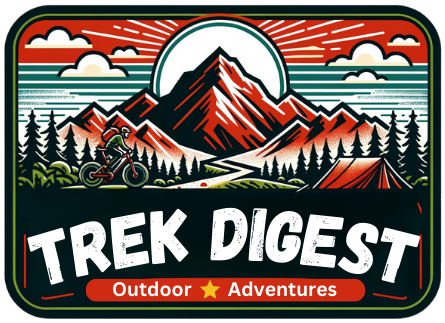Are you tired of the same old hiking trails and looking for something new and exciting? Do you have a particular interest or hobby that you’d like to incorporate into your hiking experience? If so, then niche hiking might be just what you’re looking for.
Niche hiking is the practice of catering to particular types of hiking or hiker demographics. It’s about finding a unique and personalized hiking experience that caters to your specific interests and needs. Whether you’re a birdwatcher, a history buff, or a foodie, there’s a niche hiking experience out there for you.
Niche hiking can take many forms, from guided tours that focus on a particular aspect of nature or culture, to self-guided hikes that allow you to explore at your own pace. Some niche hikes are geared towards specific age groups or fitness levels, while others are designed to cater to families or groups of friends. No matter what your interests or needs are, there’s a niche hiking experience out there that’s perfect for you.
Understanding Niche Hiking Interests
Defining Niche Hiking
Niche hiking is a term used to describe specialized hiking experiences that cater to particular types of hikers or demographics. These specialized experiences can include anything from guided tours of specific trails to themed hiking events that focus on a particular interest, such as birdwatching or photography.
Niche hiking experiences are often designed to provide hikers with a unique and personalized experience that is tailored to their interests and abilities. By catering to specific niches, these experiences can help hikers connect with like-minded individuals and explore the outdoors in a way that is both enjoyable and rewarding.
Benefits of Specialized Hiking Experiences
There are several benefits to participating in specialized hiking experiences. For one, these experiences can provide hikers with a deeper understanding and appreciation of the outdoors. By focusing on specific aspects of nature, such as plant life or wildlife, hikers can gain a greater understanding of the natural world and its interconnectedness.
In addition, specialized hiking experiences can provide hikers with a sense of community and belonging. By connecting with other hikers who share their interests, hikers can build relationships and form lasting connections with individuals who share their passion for the outdoors.
Finally, specialized hiking experiences can be a great way for hikers to challenge themselves and push their limits. By participating in themed hiking events or guided tours, hikers can explore new trails and terrain that they may not have otherwise considered. This can help hikers build confidence and improve their skills, while also providing them with a sense of accomplishment and pride.
Catering to Hiker Demographics
If you are a hiking enthusiast, you know that not all hikers are the same. There are hikers of different ages, skill levels, and interests. As a result, hiking organizations and tour operators are now offering niche hiking experiences that cater to specific demographics.
Age-Specific Hiking Programs
Hiking programs that cater to specific age groups are becoming increasingly popular. For example, many hiking organizations are now offering programs for seniors that focus on gentle hikes and nature walks that are suitable for older adults. These programs are designed to provide a safe and enjoyable hiking experience for seniors, while also offering opportunities for socialization and exercise.
Skill-Level Focused Trails
Hiking trails that cater to specific skill levels are also becoming more common. For example, some trails are designed for beginners, while others are more challenging and require advanced hiking skills. These trails are often marked with signs that indicate the difficulty level, allowing hikers to choose a trail that is appropriate for their skill level.
Themed Hiking Adventures
Themed hiking adventures are another popular niche hiking experience. These hikes are designed to cater to hikers with specific interests, such as bird watching, photography, or history. Themed hikes often include stops at points of interest along the trail, allowing hikers to learn more about the theme of the hike.
Accessibility-Forward Hiking Initiatives
Finally, accessibility-forward hiking initiatives are becoming more common. These initiatives are designed to make hiking more accessible to people with disabilities. They may include accessible trails, wheelchair-friendly paths, and other accommodations that make hiking more accessible to people with disabilities.
In conclusion, hiking organizations and tour operators are now offering niche hiking experiences that cater to specific demographics. Whether you are a senior hiker, a beginner, or a person with disabilities, there is a hiking experience that is tailored to your needs and interests.
Frequently Asked Questions
What specific needs do PCT thru-hikers have that can be addressed by niche services?
PCT thru-hikers require specialized equipment and services due to the length and difficulty of the trail. Niche services such as resupply boxes, gear rental, and shuttle services can make a huge difference in the success of a thru-hike. Many PCT hikers also have specific dietary needs, which can be addressed by niche food delivery services.
How do the demographics of Appalachian Trail thru-hikers influence trail-specific services?
The demographics of Appalachian Trail thru-hikers play a significant role in the types of trail-specific services that are offered. For example, older hikers may require more medical support or transportation services. Younger hikers may be more interested in social events and group activities. Niche services that cater to specific demographics can be very successful on the Appalachian Trail.
What are the common subcultures within the hiking community and how do they vary in their preferences?
There are many subcultures within the hiking community, including ultralight backpackers, thru-hikers, day hikers, and trail runners. Each subculture has unique preferences and needs when it comes to equipment, services, and trail conditions. Niche services that cater to specific subcultures can be very successful in the hiking industry.
What trends have been observed in hiking survey data regarding hiker preferences and habits?
Hiking survey data has shown that hikers are increasingly interested in sustainable and eco-friendly practices. Many hikers also prioritize safety and convenience when choosing equipment and services. Niche services that offer sustainable and convenient options are likely to be successful in the hiking industry.
How does age affect the needs and services required by thru-hikers on major trails?
Age can play a significant role in the needs and services required by thru-hikers on major trails. Older hikers may require more medical support or transportation services, while younger hikers may be more interested in social events and group activities. Niche services that cater to specific age groups can be very successful in the hiking industry.
What specialized equipment or support might cater to hikers in extreme or unique environments?
Hikers in extreme or unique environments may require specialized equipment and support, such as cold weather gear, avalanche safety equipment, or mountaineering guides. Niche services that cater to specific environments can be very successful in the hiking industry.

